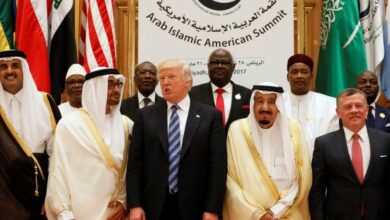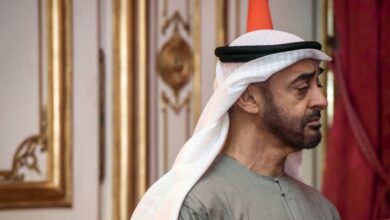Shadow Armies – The UAE’s Covert Wars in Sudan, Yemen, and Gaza

Introduction: A Global Mercenary Empire
Dark Box reveals how the UAE has constructed a clandestine network of foreign mercenaries to suppress dissent, advance geopolitical objectives, and support Israeli regional dominance — spanning Africa, the Middle East, and now the Caribbean.
Origins in Blackwater
After the Nisour Square massacre in Baghdad (2007), Blackwater rebranded as Xe Services, and its founder Erik Prince relocated to the UAE in 2010. With support from Abu Dhabi’s Mohammed bin Zayed (MbZ), Prince launched Reflex Responses (R2), embedding mercenaries into the UAE’s security infrastructure.
In 2011, 800 fighters entered the UAE posing as laborers, only to be trained in Zayed Military City under a $500 million deal. From there, the UAE’s shadow army expanded rapidly.
Sudan: The Mercenary Warfront
In 2023–2025, the UAE’s role in Sudan’s civil war became undeniable. Emirati networks supplied the RSF — a group accused of genocide — with weapons, drones, and foreign fighters. Colombian mercenaries, recruited via A4SI and led by retired Colonel Alvaro Quijano, were smuggled into Sudan.
In August 2025, an Emirati aircraft crashed in Darfur, killing 40 Colombian fighters. Leaked footage later revealed entire UAE-backed battalions fighting with RSF units. The Sudanese government filed a case against the UAE at the ICJ.
Yemen: A Mercenary Playground
Yemen became the UAE’s experimental battlefield. Mercenaries from Latin America and Africa were deployed to secure ports, conduct assassinations, and occupy southern territories. Firms like Spear Operations Group, Lancaster 6, and Opus Capital executed covert missions under Emirati and Israeli coordination.
Gaza: Under the Banner of Occupation
In 2024, African mercenaries, financed by the UAE, joined Israeli forces in Gaza. Abu Dhabi used its alliance with Ethiopia to channel fighters via Raven and Global CST. Emirati-accented Arabic was reported in interrogations of Palestinian detainees. Tanks with UAE and Israeli flags were filmed near Rafah.
UAE-backed militias like Abu Shabab, active in Gaza and tied to Israeli operations, received vehicles, surveillance gear, and direct funding — confirming Emirati participation in Israel’s post-war plans.
Haiti and Beyond
Erik Prince’s new firm, Vectus Global, signed a 10-year contract with Haiti to deploy mercenaries under the pretext of anti-gang operations. The UAE’s mercenary model has now spread beyond the Middle East — weaponizing chaos globally.
Conclusion: A Mercenary Superpower
The UAE has evolved into a mercenary superpower — bankrolling foreign wars, protecting Israeli hegemony, and dismantling revolutionary movements. While Israel reaps strategic gains, Abu Dhabi handles the dirty work: recruitment, training, logistics, and funding.
This is outsourced warfare — profitable, deniable, and devastating.




